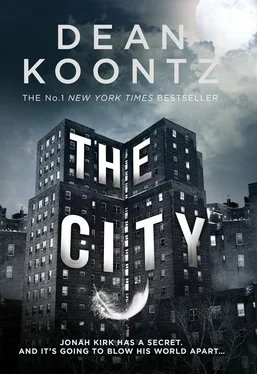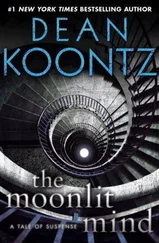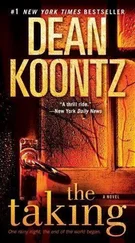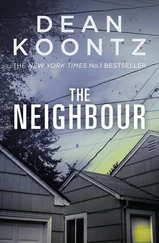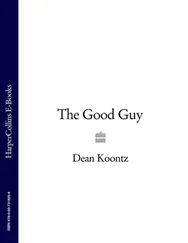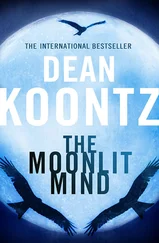She smiled and took her hand out of her purse and zippered the purse shut and said, “How do you feel about lunch?”
“I’d like some.”
Surrounding Riverside Commons were fancy homes, but we had to walk only ten minutes or so to some shops and other businesses.
We had gone about a block when I asked, “What’s a tampon? That guy said you didn’t have a gun, all you had was a tampon.”
“It’s nothing, just a kind of sponge.”
“You mean like the one on the kitchen-sink drainboard?”
“Not exactly like that.”
“Like the ones they use at the car wash over on Seventh Street?”
“No, not that big.”
“Why would he think you had a sponge in your purse?”
“Well, because I do. Women do.”
“Why do you carry a sponge in your purse?”
“I like to be prepared.”
“Prepared for what? You mean like if you spill something?”
“That’s right.”
“Have you ever needed it?”
“Sometimes.”
“You’re a very neat person,” I said. “I try to be neat, too.”
We were passing a bus stop, and she said she needed to sit down on the bench, and when she sat there, she started laughing so that tears came to her eyes.
Sitting beside her, looking around but seeing nothing hilarious, I said, “What’s so funny?”
She shook her head and took a Kleenex from her purse and blotted her eyes. She tried to stop laughing but couldn’t, and finally she said, “I was just thinking about those two idiot delinquents.”
“They weren’t funny, Mom. They were scary.”
“They were scary,” she agreed. “But silly, too, in a way. Maybe I’m just laughing with relief, neither of us hurt.”
“Boy, you sure faked them out.”
She said, “And you kept your cool.”
When she finished blotting her eyes and blowing her nose, she tossed the Kleenex in a waste can beside the bench.
I said, “Are you sometimes able to fool idiots like them because the tampon sponge is shaped like a gun?”
That started her laughing again. I decided she had a case of the giggles, like when something strikes you a lot funnier than it really is but then for some reason everything seems funny until finally the giggles go away, sort of like hiccups.
Between giggles she said, “Honey … tampon isn’t … a nasty word. But you … shouldn’t use it anyway.”
“I shouldn’t? Why?”
“It’s not a word … little boys … should use.”
“How old do I have to be to use it?”
“Twenty-five,” she said, and just the number made her laugh harder.
“Okay, but is it still all right to say sponge ?”
And there she went again.
Soon some people came along who were waiting for the bus, and we got up and let them have the bench and continued toward the shops. Walking seemed to cure my mom, and I was glad for that. I’d worried that the two delinquents might show up, because I was certain Mom wouldn’t fake them out again if she was unable to stop giggling.
We couldn’t afford to dine out often, and when we did dine out, we always went to the lunch counter in Woolworth’s, because as an employee Sylvia got a discount. That day, however, we went to a real restaurant, which she said was French, and I was relieved when it turned out they spoke English. The place had a holding bar with a scalloped canopy and a big mirror at the back, a black-and-white checkerboard floor, black tables and chairs with white tablecloths, and black booths with black-vinyl cushions and white cloths. The salt and pepper shakers were heavy and looked like crystal, and I was afraid to use them because if I broke one it would probably cost a fortune.
They had a few items for kids, including a cheeseburger, so of course I ordered that with fries and Coca-Cola. My mom had a green salad with sliced chicken breast on top and a glass of Chardonnay, and then we had what I called the best pudding in the history of the world and what Mom called crème brûlée.
We were waiting for that dessert when I leaned across the table and whispered, “How can we afford this?”
She whispered, “We can’t. We aren’t paying.”
Clutching the edge of the table, I said, “What’ll they do to us when they find out?”
“We’re not paying, your father is.”
Alarmed, I said, “He’s not coming back?”
“You know that quart mayonnaise jar he puts his pocket change in every night? When I packed his things for him, I didn’t pack that.”
“Maybe he’ll come back for it.”
“He won’t,” she said with conviction.
“But isn’t it wrong to take his money?”
“No, it’s his security deposit.”
“His what?”
“Landlords make you put down a security deposit, some hard cash, when you move in, so if you damage the apartment before you move out, they already have the money to cover it and don’t have to chase you for it. Your father never paid his share of rent since he moved back in, and he did some damage yesterday. He sure did some damage. So I kept his jar of change as a security deposit, and now he’s buying us a fancy good-bye lunch.”
Years would pass before I had crème brûlée again and could learn if it really was the best pudding in history or if it just tasted so good because of the circumstances. Nothing could have been better, after all, than the gift of an expensive good-bye lunch from my father without him there to ruin it.
That afternoon, we saw a funny movie starring Peter Sellers, and that evening I spent with Mr. and Mrs. Lorenzo, where I fell asleep on their sofa with Mr. Gluck’s pendant held tightly in my right hand. Sometimes I half woke and thought I could feel the feather fluttering softly. When my mother came home after midnight, following a four-hour set at Slinky’s, Mr. Lorenzo carried me up to our apartment, and I was so sleepy that Mom tucked me in bed in my underwear rather than make me get into pajamas. She wanted to put the pendant safely in a nightstand drawer, but I held fast to it.
I dreamed of a great white bird as big as an airplane, and I rode on its back with no fear of falling, the world sparkling below, forests and fields and mountains and valleys and seas where ships sailed, and then the city, our city. People looked up and they pointed and waved, and I waved back at them, and it was only when the bird began to sing that I realized it wasn’t as big as an airplane anymore and wasn’t in fact a bird anymore, but was instead my mother dressed all in flowing white silk, with wings more beautiful than those of a swan. Carried safely upon her back, I could feel her heart beating, her pure heart beating so steady and strong.
The following Sunday, June 12, Grandpa and Grandma drove downtown in their 1946 black Cadillac Series 62 Club Coupe, which they’d bought nineteen years earlier and which Grandpa had maintained in as-new condition. It was a big boat of a car yet sleek, with enormous bullet-shaped fenders front and back and fastback rooflines. Cadillac never made a car as cool thereafter, especially not when they went finny. Teddy and Anita took us to their place for an early celebration of my birthday, which turned out to be memorable.
They were amazed by my eidetic memory for music, which matured in me only as I had learned the piano from Mrs. O’Toole. On his piano in the front room, Grandpa Teddy played a number he was sure that I couldn’t have heard before, “Deep in a Dream,” written by Will Hudson and Eddie DeLange, who had a band together for a few years in the 1930s. He played it superbly, and when he finished, I played it with my limited skills and strained reach, but though I could hear the difference between us, I was thrilled to be able to follow him at all. He tested me with a couple of other pieces, and then we sat to play together. He took the left hand of the board plus the pedals, and I took the right, which was a trick but one that worked, and we ran through a tune I already had heard often, Hudson and DeLange’s “Moonglow,” and didn’t make one mistake in tempo or chords or melody, sweet and smooth to the end.
Читать дальше
